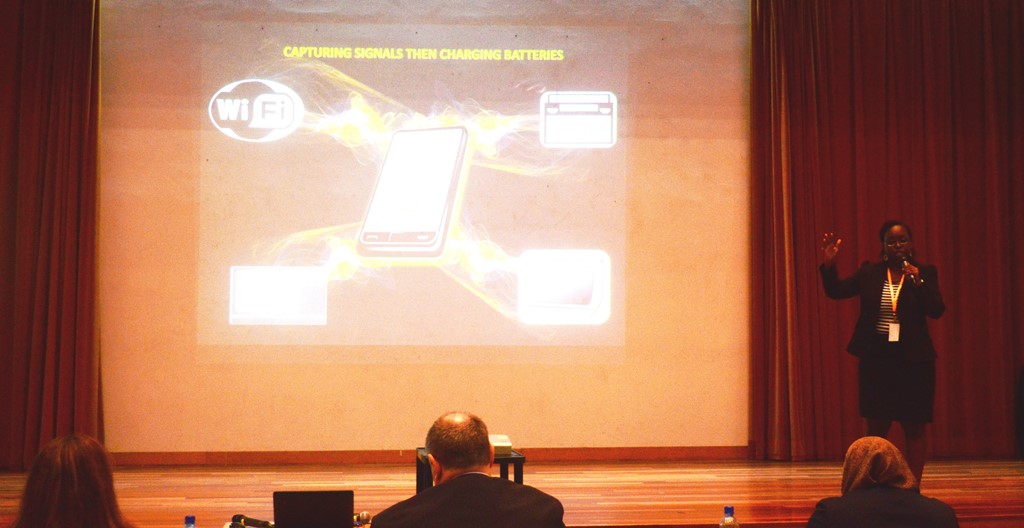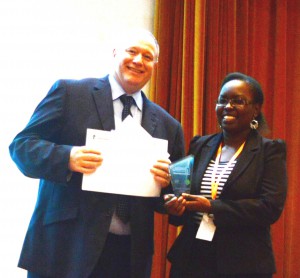
October 12, 2016, by Lisa Chin
The 3MT® Experience: Behind the Scenes
This post is written by Lillian Joyce Among Olule, 2016 UNMC 3MT® Winner and Recipient of People’s Choice Award.
At the beginning of August I was definitely sure I was not going to compete in the 3MT® this time around. My reasons? Fear. Of public speaking. Of embarrassing myself. The second reason was the standard reason for PhD students. I was busy. However deep down inside I had the uncomfortable feeling that I would probably regret passing up the opportunity to horn my skills communicating my research.
One evening as I sat torn and agonising about whether or not to participate, a cousin of mine (who was oblivious to what I was going through) sent me a message. It read “The Lord Himself goes before you and will be with you; He will never leave you nor forsake you. Do not be afraid. Deuteronomy 31:8”. I felt a sense of calm and signed up.
In the first training I attended, Dr Jiin and Dr Tissa took us through the rules of the competition. It got me thinking about how I needed to structure my dialogue, and I came up with a mantra, “Engage, excite, inform”.
Engage: When you meet a person, you have about 3 seconds to make an impression. So I figured that I would probably need about the same amount of time to draw in the audience. In other words, my opening statement had to be something captivating that the audience could identify with. (My friend Ricky suggested getting the audience to… wave their phones in the air… and shake them like they just don’t care…)
Excite: The whole presentation had to be simple yet exciting.
Inform: At the end of the day the audience needs to walk away feeling like they have learnt something. If the audience hadn’t paid attention to anything I said, I needed the conclusion to summarise the main idea behind my research.
The Graduate School training helped immensely. A big thank you to Dr Jiin and Dr Tissa for conducting them. Also, special thanks to my fellow contestants who gave feedback on the presentation during the training. It covered word choice, body language, gestures and so much more and helped me mould my presentation to what it was on the day. Secondly I practised. A lot. On many unsuspecting individuals. In fact I would find myself unconsciously going through my speech every night just before I fell asleep.
On D-day, I had no appetite and I couldn’t really sit still. I prayed and was comforted by words of support from my supervisors Dr Gnanam and Dr Nandha. My friend, Mr Tan, literally acted like a shield for me while I inconspicuously practised power poses (I learnt from a TED talk that these poses can boost your confidence before a presentation or a job interview) right before I went on stage.
After the first part of my presentation, I glanced at the clock and realised that I was speaking a little too fast. Having practised a lot I was roughly aware of how much time it would take to go through each section so I slowed down a little and the rest of the presentation went smoothly. All in all the whole experience was an enriching one.
I am grateful to everyone who enjoyed my presentation enough to vote for me, the judges for taking the time to preside over the event and to the Graduate School for organising the event. I will end with a word of encouragement. “You can be the greatest obstacle to your own accomplishments. Change your mind-set. Believe and achieve.”
-
Post a comment

